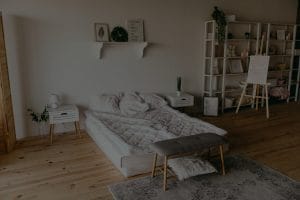**Abstract:** Discover how feng shui enhances modern interior design, offering practical tips to create harmonious spaces that foster well-being and balance. Explore essential principles for a serene home.
Understanding Feng Shui: A Harmony of Space
Feng shui, an ancient Chinese practice, emphasizes the importance of energy flow in our environments. In modern interior design, these principles are increasingly adopted to create harmonious spaces that promote well-being. The essence of feng shui lies in its ability to transform a home into a sanctuary, where energy, or “chi,” flows freely. By integrating feng shui principles, homeowners can enhance their living spaces, fostering positivity and balance.
Key Principles of Feng Shui in Interior Design
Several key principles guide the application of feng shui in interior design. One fundamental aspect is the arrangement of furniture. Positioning furniture in a way that encourages conversation and connection is vital. Avoiding clutter is another critical principle; a clean space allows energy to circulate freely. Additionally, incorporating natural elements, such as plants and water features, can further enhance the positive energy in a room, creating a tranquil atmosphere.
Color Schemes and Their Impact
Color plays a significant role in feng shui, influencing mood and energy levels. Each color corresponds to specific emotions and energies. For instance, soft blues and greens promote calmness, while vibrant reds can energize a space. When selecting color schemes for a room, consider the function of the space. A home office might benefit from invigorating colors to boost productivity, while a bedroom should embrace soothing tones for relaxation. The careful selection of colors not only enhances aesthetics but also aligns with the principles of feng shui.
Creating Balance with Furniture Placement
The arrangement of furniture is crucial in feng shui. To create balance, ensure that furniture is positioned to facilitate easy movement throughout the space. Avoid placing furniture directly in line with doors, as this can block the flow of chi. Instead, opt for a layout that encourages conversation and interaction. Utilizing circular or rounded furniture can also promote a sense of unity and inclusivity. This thoughtful placement fosters a welcoming environment that resonates with positive energy.
Incorporating Natural Elements for Positive Energy
Integrating natural elements into your interior design can significantly enhance feng shui. Plants, for example, not only purify the air but also symbolize growth and vitality. Water features, such as fountains or aquariums, represent abundance and prosperity. When choosing natural elements, consider their placement carefully; for instance, placing a plant in a corner can help eliminate stagnant energy. By embracing nature within your home, you create a serene atmosphere that nurtures well-being.
Decluttering: The Foundation of Good Feng Shui
Decluttering is essential for achieving good feng shui. A cluttered space can lead to blocked energy flow, resulting in feelings of stress and anxiety. Begin by assessing each room and removing items that no longer serve a purpose. Organizing belongings not only creates a visually appealing environment but also allows positive energy to circulate freely. Establishing a regular decluttering routine can help maintain a harmonious space, ensuring that your home remains a sanctuary of tranquility.
Enhancing Your Space with Feng Shui Accessories
Incorporating feng shui accessories can further enhance the energy of your home. Items such as crystals, mirrors, and wind chimes can be strategically placed to attract positive energy. Crystals, for instance, are believed to amplify energy and promote healing. Mirrors can be used to reflect light and expand a space, while wind chimes introduce a soothing sound that encourages relaxation. By thoughtfully integrating these accessories, you can create a vibrant and balanced environment that resonates with positive chi.
Conclusion: A Harmonious Home Awaits
Embracing feng shui in modern interior design offers practical solutions for creating harmonious living spaces. By understanding the key principles, incorporating natural elements, and maintaining a clutter-free environment, you can transform your home into a sanctuary of well-being. The journey to a balanced and serene home begins with small changes that align with the principles of feng shui, ultimately leading to a more fulfilling and joyful life.










